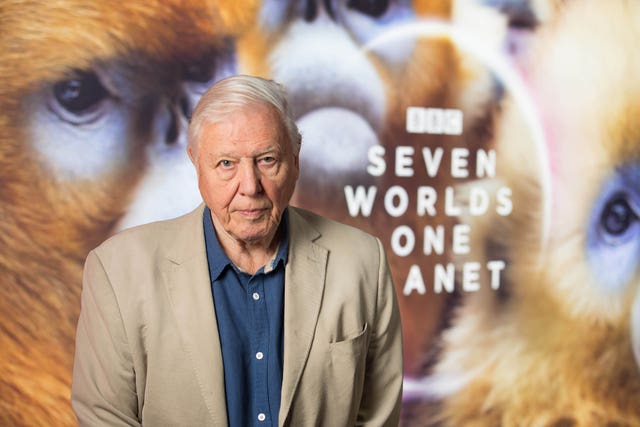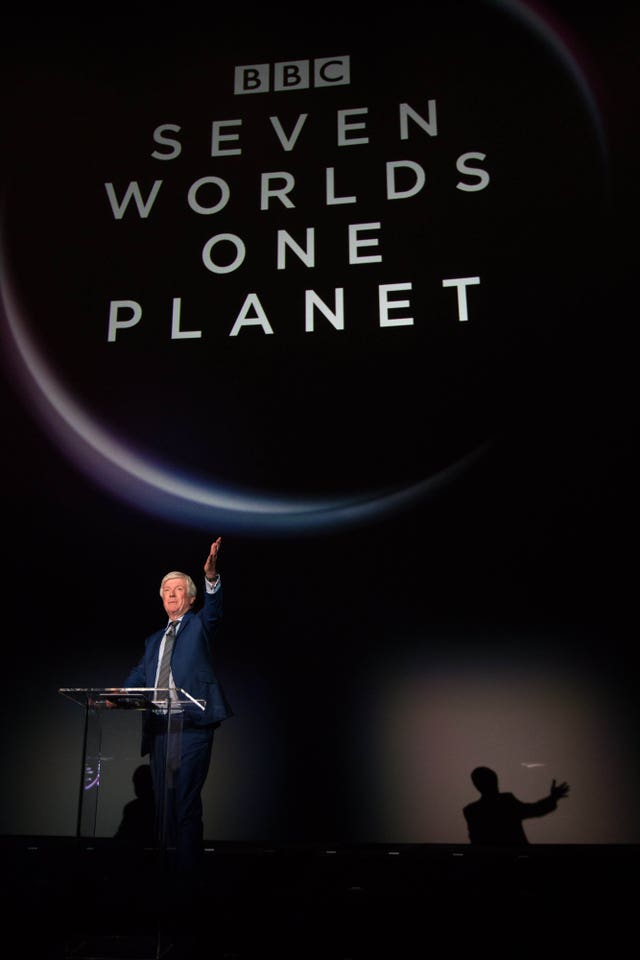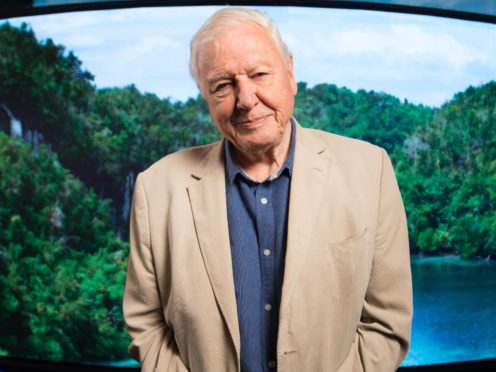Sir David Attenborough has said his new natural history programme celebrates the “variety of life” on earth as well as shining a spotlight on its biggest challenges.
Billed as an “ambitious, landmark series”, Seven Worlds, One Planet – which has taken four years to create – will debut on Sunday October 27 on BBC One.
Across seven episodes set to air over seven weeks, it will tell the story of the planet’s continents and “how they shape the extraordinary animal behaviour and biodiversity we see today”.

The veteran broadcaster, 93, launched the new series at a premiere in London’s Leicester Square on Monday, where he told a packed audience: “I’m thrilled that we’re about to share this incredible series with the world, which has been four years in the making by more than 1,500 dedicated people, on every continent.
“Seven Worlds, One Planet celebrates biodiversity and the variety of life on our planet whilst also shining a spotlight on its challenges.”
The exclusive screening featured a live satellite link-up with Mumbai’s Royal Opera House in India and Johannesburg’s Cradle of Humankind in South Africa, which allowed 400 schoolchildren to watch the first episode, about Antarctica.
The programme marks the first time the BBC’s Natural History Unit has explored every continent in a single series.
The filmmakers have utilised the latest technologies, including new drone techniques, to capture unique perspectives, new species and never-before-seen animal behaviours.
The BBC said Seven Worlds, One Planet will show “where humankind is negatively and positively impacting the health of the planet” as well as give an insight into a “bizarre predator” in the Iranian desert, “grave-robbing” hamsters in Austria and one of the largest and rarest animals on the brink of extinction in Kenya.
The series, narrated by Sir David, is accompanied by the music of Hans Zimmer, who previously collaborated with the BBC’s Natural History Unit on Planet Earth II and Blue Planet II.
The BBC’s Director-General Lord Tony Hall, who introduced the screening, said the series “embodies the qualities that have become synonymous with the work of our Natural History Unit in Bristol.

“The team there are true pioneers – they have an insatiable curiosity to discover new things. And that sense of adventure is why we’ve already committed to a pipeline of natural history landmarks.
“Since Planet Earth II we’ve been doing one a year – and we’ll continue to do that running up to 2023.
“We’ve never had that scale of ambition before and no other broadcaster in the world comes close to that kind of commitment to the natural world.”
